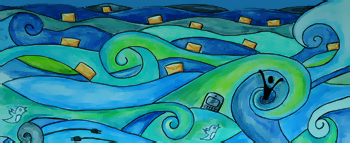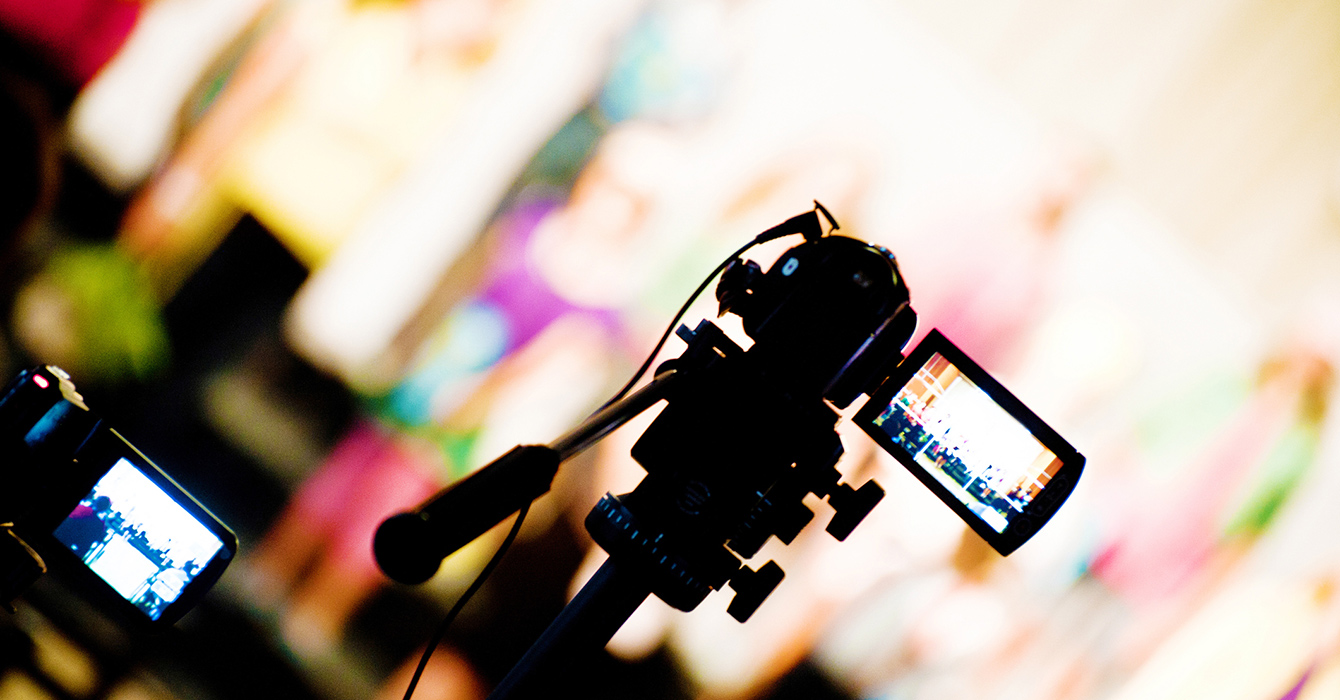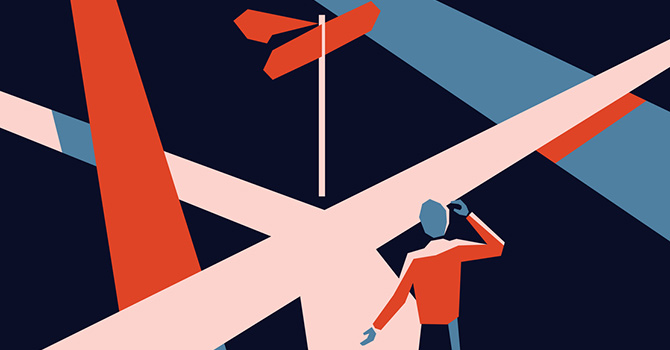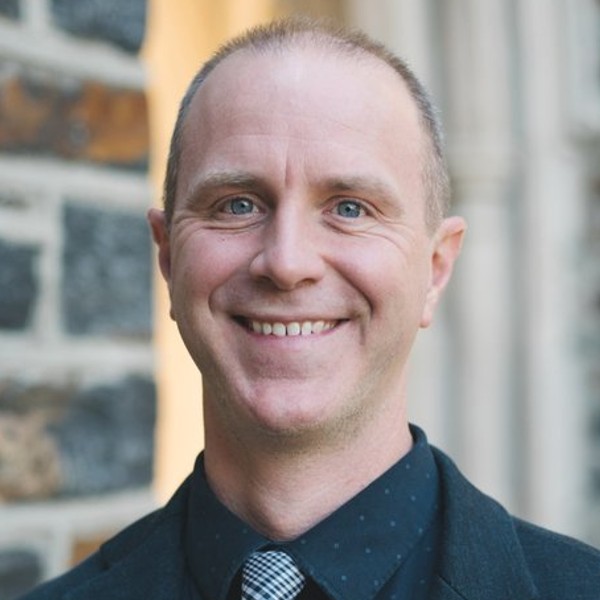“Sometimes it’s a matter of talking to other people …”
The Internet is full of research, and you could spend the rest of your life trying to read it all. So don’t even try to. Instead, organize and delete information as it comes in rather than letting it pile up, said Deborah Barreau, an associate professor at the University of North Carolina at Chapel Hill’s School of Information and Library Science who studies personal information management.
She filters information by ignoring some of the more popular sources and focusing her time on trusted periodicals that publish up-to-date findings. She also keeps a bibliography database of articles she might want to refer back to at some point so they’re easy to find in the future.
Before she moves from collecting information to synthesizing it, she talks over her findings with colleagues to help identify gaps.
“Sometimes it’s a matter of talking to other people about what they’ve read and run into. Sometimes that can give you an idea, ‘OK, I’ve got enough,’” she said. “That goes back to relationships rather than what you find on the Internet.”
“The act of writing helps you retain something”
Ann Blair , a history professor at Harvard University and the author of “Too Much to Know,” relies on note-taking to filter the research coming her way.
She files those notes electronically and revisits them often, both to flush out what she no longer needs and to make sure the headings she filed them under still work for her.
“We take notes in order to focus our attention at the moment, slow down the mind and engrave it in the memory better,” she said. “The act of writing helps you retain something.”
She spent about six years researching her book, which included visiting European libraries to examine 16th-century reference books and old Latin manuscripts, before writing it over the next four years. It’s hard, she said, to know when to stop collecting information, whether it be for a sermon, an article or a book.
So when should you stop researching and start interpreting?
When you start to notice recurring themes and recurring authors, she said. “In taking that step, you know there is more out there that you’re not going to access, but there’s a curve of diminishing returns.”
“Be the master of your interruptions”
Multitasking is essentially the act of interrupting one activity with another, ensuring that both take longer to accomplish, said Joanne Cantor, the outreach director at the University of Wisconsin-Madison’s Center for Communication Research and author of “Conquer CyberOverload.”
So instead of multitasking, she said, “be the master of your interruptions” by turning off gadgets and email notifiers while you work.
When your mind gets foggy, take a break, but don’t jump onto Facebook or your BlackBerry, she said. Sometimes, just two minutes of quiet reflection allow the brain to sort out whatever material you’ve been looking at.
“You don’t have to hide in a cave, but give yourself a good patch of time where nothing new is coming in,” Cantor said. “Your brain is going to be processing all this stuff that didn’t make sense.”
“Keep your connection to the Holy One”
Years ago the Rev. Wilson Gunn, the general presbyter at the National Capital Presbytery, took a speed-reading course. It has been invaluable in enabling him to digest quickly large amounts of information, including news articles and emails, he said.
And if he needs quiet time to finish a project, he’s not shy about shutting the door and hunkering down. He also recommends renewing one’s spirit regularly by pursuing outside interests. For Gunn, who oversees 108 churches in Washington, D.C., Virginia and Maryland, those include sailing and playing the string bass.
“In the midst of all the flow of minutiae and how to filter it out, it’s really important you keep your connection to the Holy One in some sustained spiritual way,” he said.
“The use of technology … requires a certain degree of self-control”
As the coordinator of middle governing body relations for the Presbyterian Church (U.S.A.), the Rev. Jill Hudson travels quite a bit, facilitating connections among the local, regional and national organizations within the church. When she’s on the road, her administrative assistant accesses her email to keep messages from piling up.
“If there are simple questions she can answer, she does so and copies me,” Hudson said in an email. “That has helped tremendously.”
She has also unsubscribed to e-newsletters from special interest groups, because she can visit the organizations’ websites if she’s interested. And though she likes the speed associated with email communication, she avoids camping out on the Internet or on Facebook.
“I think the use of technology is one which requires a certain degree of self-control,” said Hudson, the author of “When Better Isn’t Enough: Evaluation Tools for the 21st-Century Church.” “You can get lost in it.”
“Rely ... on the sovereignty of God”
C. Michael Patton , the president of Credo House Ministries, spends a lot of time helping both clergy and laypeople cope with information overload, particularly when it comes to filtering everything found on the internet and integrating it with their existing faith.
His advice?
First, find reliable sources. For him, those are authors like Daniel B. Wallace, a professor of New Testament studies at Dallas Theological Seminary, who are “humble in their approach” and who rely on tried-and-true historical texts.
Second, it’s OK to question aspects of your faith without falling into the trap of the “house of cards” theology, he said.
When he meets people who are overwhelmed by the details, he guides them back to one bedrock principle and moves the conversation forward from there. For him, that principle is the irrefutable resurrection of Christ.
“Overload can cause you to go into a state of despair and doubt, or it can cause you to go into a state of humility,” he said. “I rely a lot on the sovereignty of God.
“If God is sovereign and you have gone through the responsible study of the Bible and church history and modern scholarship and you are moving forward and you’re doing it the right way, God [is] not confused. He’s not out of control. That brings me back to my foothold.”
“Divert daily, withdraw weekly and abandon annually”
The Rev. Dr. C. Jeff Woods, the associate general secretary for regional ministries of American Baptist Churches USA, uses color-coded flags to help sort his Outlook email, which accounts for about 75 percent of the information he receives each day.
A green flag indicates a message he needs to think about and respond to. He buys himself some time for this category by having an automatic message go back to the sender indicating that the email was received and he’ll respond as soon as he can.
A purple flag marks an email that includes helpful information, such as the details of an upcoming conference or directions to a meeting. Usually, the event will be happening within the next week, after which the email can be deleted. He tries to keep his green and purple email files to fewer than 100 messages and culls them weekly.
The last color is orange, which indicates a resource, such as a journal article or a link to useful research or information about trends.
Woods tries to set aside one day each week to return phone calls and emails and to catch up.
He also likes the mantra “Divert daily, withdraw weekly and abandon annually.”
Daily, he does devotions in the morning, and he spends extra time on Fridays to “finish a conversation with God.”
Weekly, he tries to take in a baseball game if he’s traveling (he’s been to every major league baseball park in the country) or to watch one of the American Film Institute’s top 100 films.
He said he’s not as good about taking an annual break, but he’s working on it.













